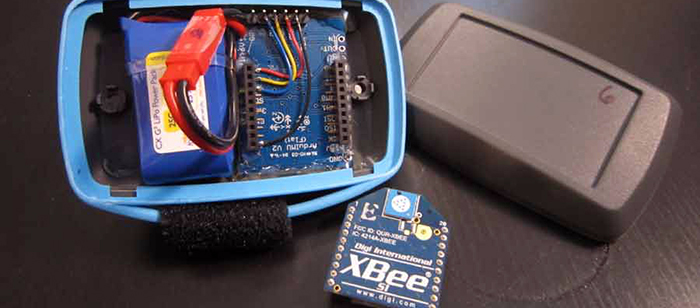talk: Sensor-based assessment of human motion during therapeutic exercise

UMBC Information Systems
Sensor-based assessment of the quality
of human motion during therapeutic exercise
Dr. Portia Taylor
Social Security Administration
12-1pm Wednesday, 10 April 2013, ITE 459
Advances in technology and research have been employed in recent years to develop efficient mechanisms to deliver home-based exercise therapy to patients suffering from knee osteoarthritis, a degenerative disease associated with aging. Essential to the success of a therapeutic home-exercise program is the quality of the motion performed by the patient. The unsupervised nature of home-based exercise may lead to incorrect exercise performance by patients; however, current home-based exercise programs do not provide mechanisms for monitoring the quality of motion performed or for providing feedback to the patient. This lack of support has been found to be a factor in patient non-compliance to home exercise programs.
Our goal is to provide a motion sensor-based system that can evaluate the quality of exercise to support home rehabilitation. We introduce the Quality Assessment Framework (QAF) that uses low-cost motion sensors with data processing and machine learning techniques to assess the quality of human motion performed during therapeutic exercises. Data from fifteen persons with knee osteoarthritis was collected in a laboratory environment, and a classifier was trained using multi-label learning methods to detect descriptive characteristics of the patient's motion. These characteristics represent errors in the exercise performance as well as variables regularly monitored by the patient's therapist, such as speed.
Results from multi-label learning are presented and recommendations made on requirements for an in-home therapeutic exercise system. The QAF can be adapted to the home therapy needs of conditions other than knee OA. We present a preliminary design of the InForm Exercise System that utilizes the QAF and has the potential to present feedback to patients completing home exercise programs.
Portia Taylor received her BS degree in Computer Science from Grambling State University in 2007 and a Ph.D. degree in Biomedical Engineering from Carnegie Mellon University in 2012. At CMU, she was part of the Quality of LifeTechnology Center, a NSF Engineering Research Center dedicated to the development of technologies for the elderly and disabled. Currently, Dr. Taylor works at the Social Security Administration as an IT Fellow. Her research interests include machine learning applications in biomedical engineering, intelligent systems for rehabilitation and physical therapy, and heath information technology.
Posted: April 2, 2013, 9:34 AM